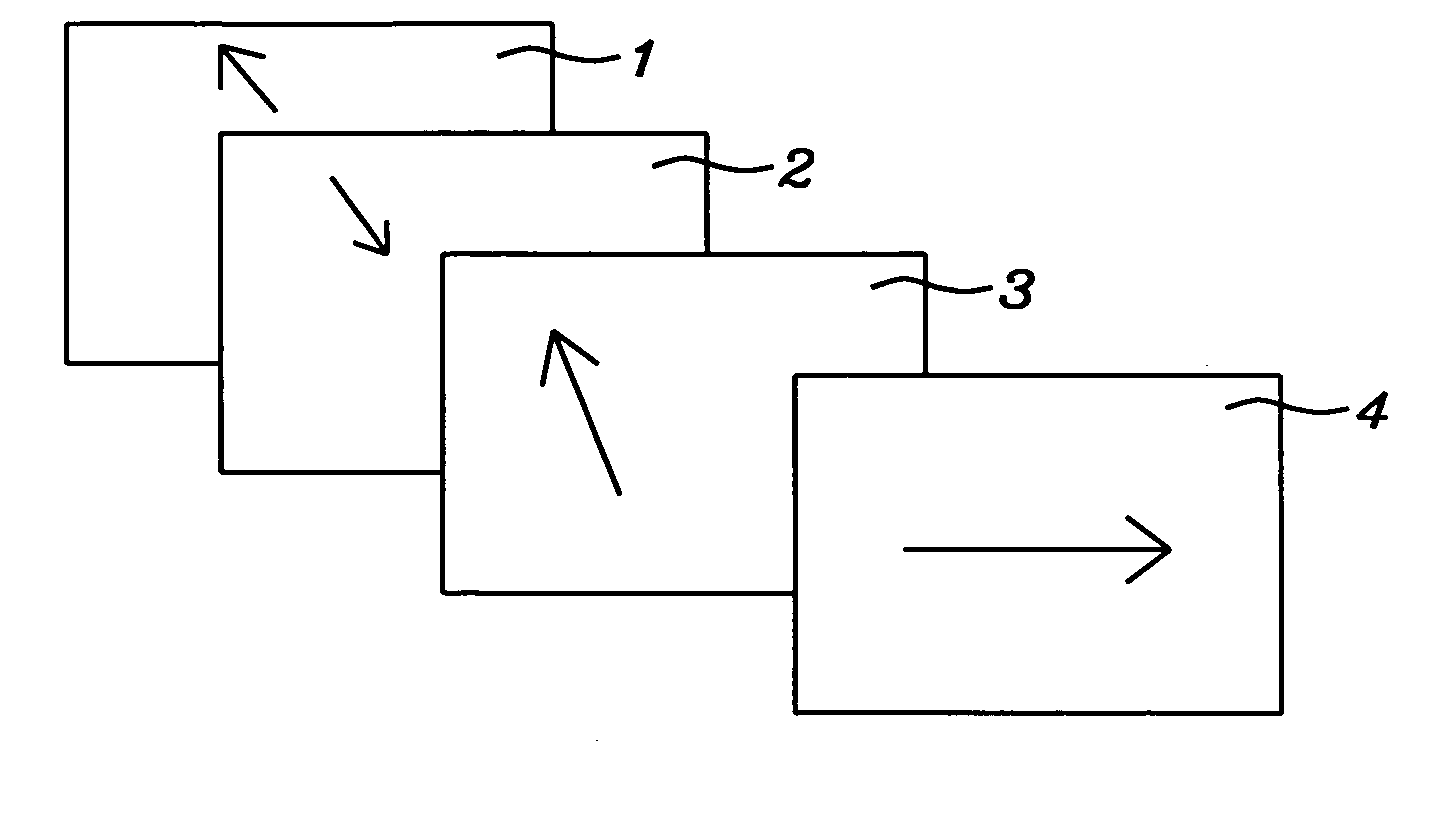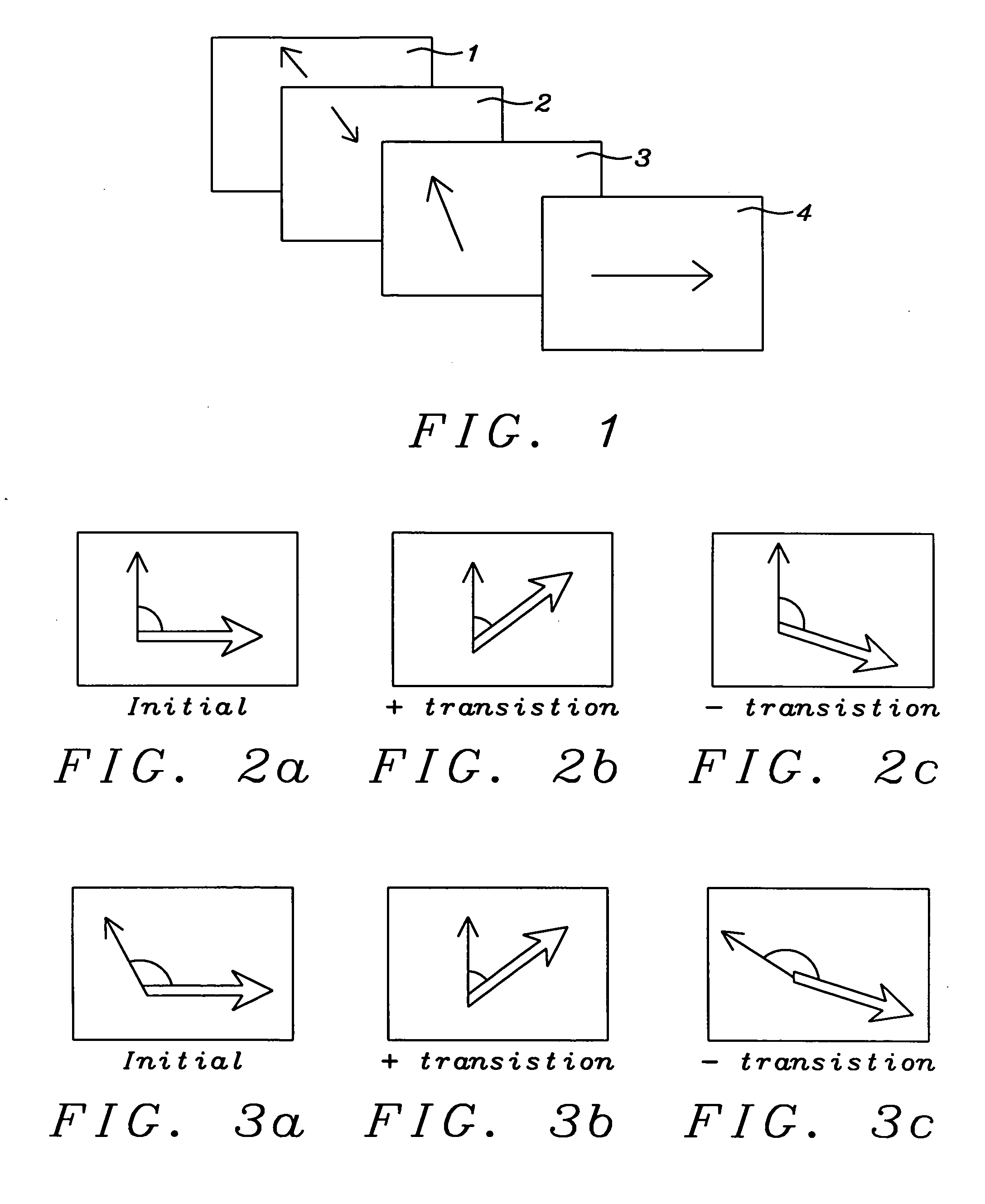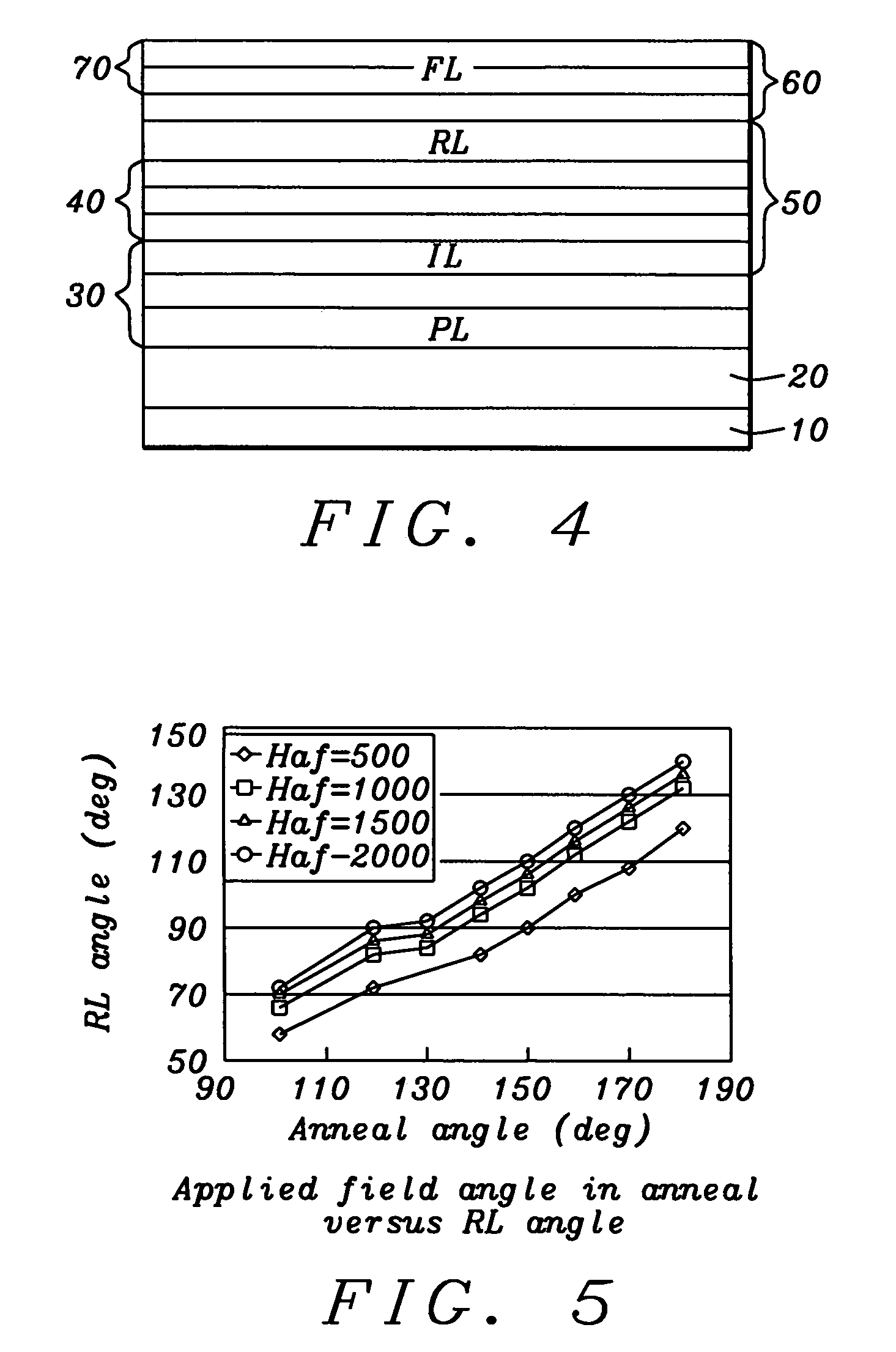GMR sensor having a reference layer with movable magnetization
- Summary
- Abstract
- Description
- Claims
- Application Information
AI Technical Summary
Benefits of technology
Problems solved by technology
Method used
Image
Examples
Embodiment Construction
[0032] The present invention provides a modified spin-valve sensor having a synthetic antiferrimagnetic pinned reference layer, which is formed of three ferromagnetic layers, denoted PL, IL and RL (pinned layer, intermediate layer and reference layer) wherein each pair of layers is separated by a spacer layer and magnetized, by exchange coupling, as a synthetic ferrimagnet, SyF. The method of fabricating the sensor is also provided. A novel aspect of the invention is that the exchange coupling between PL and IL is stronger than that between IL and RL, so that the magnetic moment of RL is relatively free to move in the magnetic field of the recorded medium, while the PL / IL combination plays the role of a pinned layer. Because the annealing of the structure creates an angle between the magnetic moments of RL and the free layer, FL, that is between 90° and 270°, the free layer magnetization moves in an opposite direction to the RL magnetization under the influence of the external field...
PUM
 Login to View More
Login to View More Abstract
Description
Claims
Application Information
 Login to View More
Login to View More - R&D
- Intellectual Property
- Life Sciences
- Materials
- Tech Scout
- Unparalleled Data Quality
- Higher Quality Content
- 60% Fewer Hallucinations
Browse by: Latest US Patents, China's latest patents, Technical Efficacy Thesaurus, Application Domain, Technology Topic, Popular Technical Reports.
© 2025 PatSnap. All rights reserved.Legal|Privacy policy|Modern Slavery Act Transparency Statement|Sitemap|About US| Contact US: help@patsnap.com



